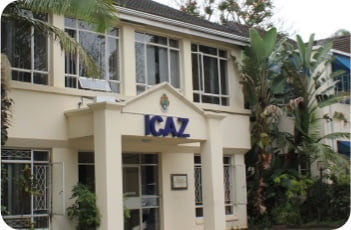
THE Institute of Chartered Accountants of Zimbabwe (Icaz) has called for robust financial reporting standards and rigorous compliance protocols to promote capital formation and optimal resource allocation.
As Zimbabwe pushes for economic reforms and renewed investment, Icaz believes the profession is uniquely positioned to provide the financial discipline, transparency and trust required to support sustainable development.
Founded in 1918, Icaz is the oldest professional accountancy body in Zimbabwe. It sets standards for the profession, promotes international best practices and upholds ethical standards.
Its members serve in leadership roles across government, listed companies, audit firms and non-governmental organisations.
In a write-up sent to NewsDay Business, Icaz technical manager Tonderai Mabambe said professional accountancy played an enabling role in the economy by setting standards and enforcing compliance.
“Within Zimbabwe’s complex economic architecture, professional accountancy serves as a critical institutional mechanism that systematically enhances the nation’s productive capacity,” he said.
“By establishing robust financial reporting standards and enforcing rigorous compliance protocols, the profession creates the necessary conditions for efficient capital formation and optimal resource allocation.”
Mabambe said practitioners reduced systemic information gaps that traditionally impede market efficiency, through internationally-recognised accounting frameworks.
- Hyperinflation headache for accountants
- PAAB tightens screws on non-compliance
- Hyperinflation headache for accountants
- PAAB tightens screws on non-compliance
Keep Reading
“Standardised reporting not only benefits enterprises but strengthens the broader economic ecosystem by enabling accurate risk assessment and pricing,” he said.
At the macroeconomic level, the profession supports fiscal transparency and good governance.
“These governance enhancements are especially critical in developing economies where institutional weaknesses often constrain growth,” Mabambe said.
“Our technical expertise in areas like tax policy and public financial management contributes directly to more effective economic policy implementation.”
The profession also plays a key role in enterprise development by embedding sound financial management practices across organisations.
This is particularly transformative for small and medium enterprises (SMEs), many of which are navigating the shift from the informal to the formal economy.
“Accounting professionals help bridge managerial gaps, allowing SMEs to adopt better budgeting and working capital strategies. This improves their growth prospects and makes them more bankable,” Mabambe said.
On the investment front, adherence to global reporting standards by Zimbabwean accountants helps reduce due diligence costs for foreign investors and lowers country risk perceptions, he said.
“Standardisation enhances credibility and facilitates capital inflows,” Mabambe said.
“Professional accountancy contributes to Zimbabwe’s integration into global value chains by creating a more predictable financial environment.”
Icaz equips professionals with the skills needed to adapt to economic shifts and emerging technologies in finance.
“This knowledge base is vital for implementing economic reforms and embracing innovation. Our focus on ethics and integrity also strengthens the institutional framework required for long-term resilience,” Mabambe said.
As Zimbabwe continues to navigate economic reforms, the accountancy profession would remain central to policy execution, digital transformation, and future regulatory developments such as climate-related financial disclosures, he said.
“Accounting professionals are custodians of financial truth. They provide the scaffolding needed for capital efficiency, investor confidence and sustainable growth,” Mabambe said.










